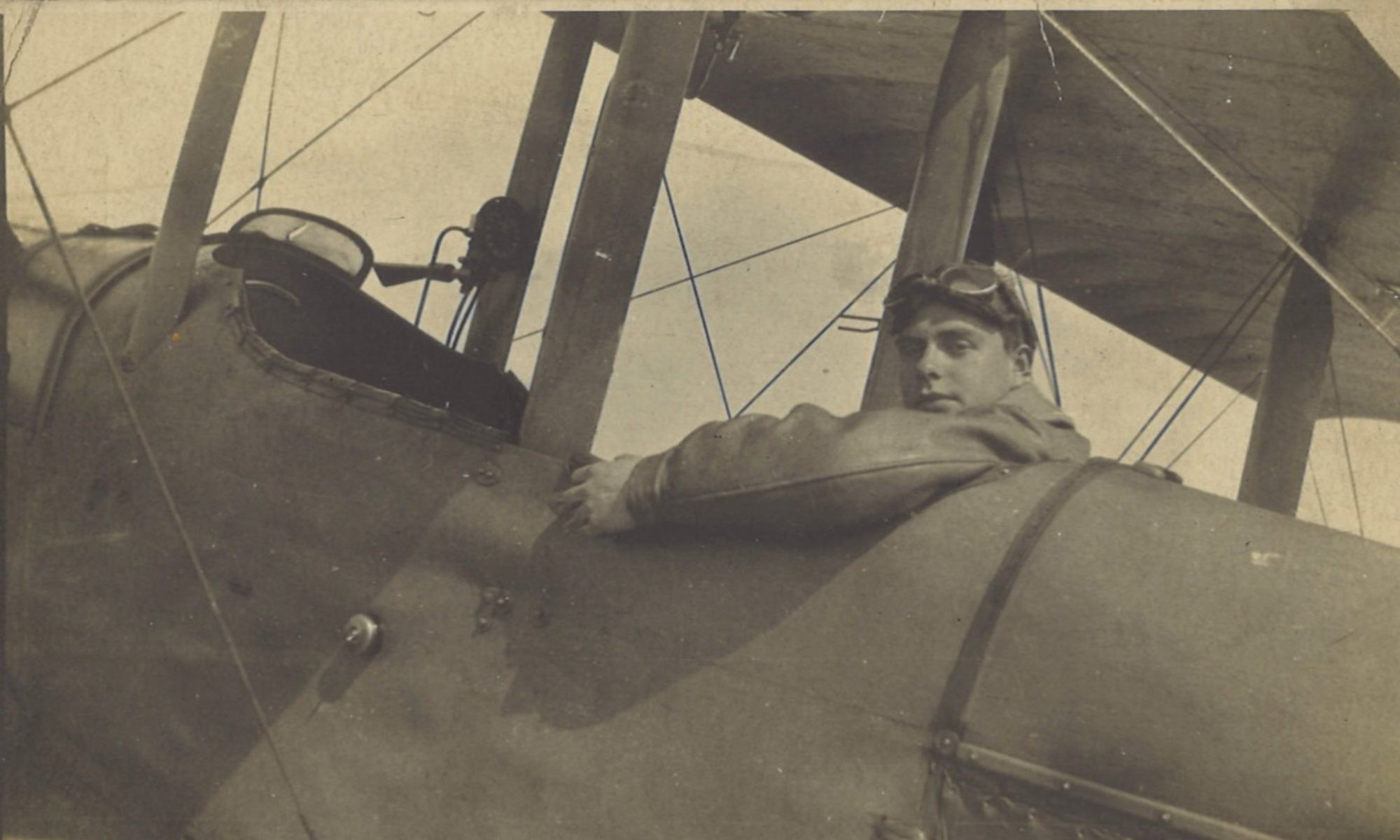Another Counter Battery Patrol, in which Greg was twice switched to new targets, another four bombs dropped, some “pretty hot Archie”, and an intriguing order about sheet tin.
Log Book

![]()
Date: 27.6.18 Hour: - Machine type: RE8 No.: E27 Observer: Lt Kennedy Time: 2 hrs 5 m Height: 6000 Course/Remarks: CBP. 4 bombs. Archie pretty hot.
Diary


Thursday June 27th. CBP 8 – 11 (8.40 – 10.45). Four bombs dropped, caused small fire. Archie very persistent & pretty hot. Sent FL FR FD & got to 6,000 ft. Engine rough but picked up & ran very well. Got X twice from CWS.
“Archie”…
…was anti-aircraft fire, as explained here:
“Sent FL FR FD”…
…means that a series of favourable weather signals was sent, explained here,:
“Got X twice from CWS”…
…means that Greg twice was given the signal X from the squadron’s Central Wireless Station. ‘X’ meant ‘change to new target’. The X (formed of ground strips of cloth) would be followed by a description of the target. Sounds a bit like he felt was being messed around.
Sheet Tin
The day’s routine orders from the CO, Major Hunter MC, had an interesting entry about sheet tin, which was obviously of some value:
Recovery of sheet tin from Biscuit, Tea and other large tins
Arrangements having been made to sell all sheet tin which is in good condition and which is not required by the British Armies in France, it is necessary that as uniform a method of recovery as possible should be adopted.
Tins are to have their tops and bottoms removed entire, after which the bodies are to be opened up at the joints, i.e., at two diametrically opposite corners. the sheets thus produced are to be pressed flat, bundled in twenties and tied with wire or hoop iron.
The tops and bottoms are to be similarly bundled.
The joints can be opened by hating on an iron plate over a brazier. When the solder in the joint runs, the parts of the tin can be shaken apart.
Special care is to be taken that only sufficient heat is used to make the solder run. Too much heat will spoil the tinned surface and render it unfit for sale.
To prevent deterioration from rust, it is very important that tins should be dealt with as soon as received and should not be left exposed to damp after packing (4000/40 (Q.B.1).)
(G.R.O. 4326, dated 21.6.18).
One might reasonably wonder why “the British Armies in France” might have any use for sheet tin themselves. In fact, one use was to make reflective signal discs in the gas mask haversacks of the infantry:

The discs could be deployed by troops in forward positions, so that RAF patrol aircraft on infantry liaison duties (so-called ‘contact patrols’) could see their position and transmit this information to the relevant headquarters.




